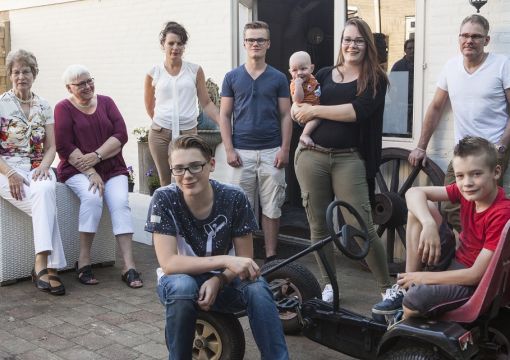Data
All data collected from Lifelines participants are of great value to researchers and policy makers. To ensure the validity and reliability of the data over time, safe data storage and good data management are essential. Lifelines data management strives to act according to the FAIR principles of data management.
Our data resulting from questionnaires, measurements and lab analyses are safely stored in our data warehouse. Lifelines data management strives to act according to the FAIR principles of data management. When you have applied for data, you will gain access to these data via a secure virtual working environment. The data is pseudonymised to guarantee the participants’ privacy.

Questionnaire data
Lifelines questionnaires cover a broad range of topics, e.g. general information like education and work; health questions related to medication use; questions regarding lifestyle and environment like nutrition, smoking and physical activity; and psychosocial questions covering topics like well-being, personality and stress. Questionnaires differ per age category: for children up to 13 years old, questionnaires are filled in by their parents, while children aged 13 up to and including 17 years old, answer questions themselves and have a parent fill in the questionnaires. All adults, 18 years and older, receive identical questionnaires. Some additional questions are added to questionnaires for participants aged 65 or higher.
How to apply for data
Lifelines provides easy access to data and samples for research on healthy ageing. Please read the application process carefully. The Lifelines data capture process is an ongoing process which makes our dataset grow continuously. An updated “snapshot” of the data is periodically created to be used in research. This snapshot is called a Lifelines Data Release. When you apply for data, you will gain access to the requested dataset based on the latest data release.
If you have applied for data, you will have access to this data via a secure virtual working environment called Workspace. The data applied for is issued in SPSS files. The data is pseudonymised to guarantee privacy. The most common statistical programs (SPSS, R, R studio and, on request STATA) have been installed in the Workspace.
Want to collect additional data?
The Lifelines cohort study has an open protocol. This allows researchers to issue an additional questionnaire or measurement or to collect additional samples in a specific group of participants.
How can we help?
We are happy to assist you with filling out a research data management plan (RDMP) if requested by your grant provider. Also we are available for questions regarding the Lifelines data during the execution of your research project.

